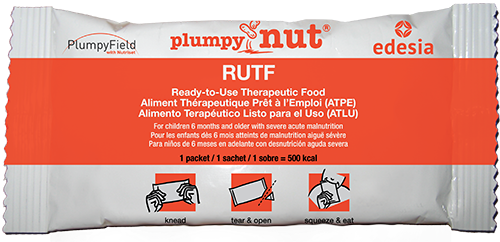The Gourmet Guru
Valerie Gurdal ’85 has been enlightening palates for decades at her shop Formaggio Kitchen.

Photo: Lee Pellegrini
Peanut Power
After fighting malnutrition across the globe, Navyn Salem ’94, H’12, tackles hunger closer to home.
When the coronavirus upended America’s economy and food system last year, Navyn Salem saw a way to help. Her company, Edesia Nutrition, had been manufacturing fortified peanut pastes since 2010 to combat severe malnutrition in developing countries and disaster areas. So Salem mobilized her Rhode Island–based team to begin making peanut butter squeeze packs for the USDA to distribute domestically to food banks, homeless shelters, schools, and hospitals. “I started to see lines at food banks, and I thought, Maybe there is a need for what we do here in the U.S.,” Salem said recently. “We made peanut butter. We designed the packaging in like forty-eight hours. It was amazing for the team to be able to pivot.”
The new MeWe Peanut Butter packets are made by a new arm of Salem’s company called MeWe Nutrition, which was launched in 2018 to support Edesia Nutrition’s humanitarian mission of nourishing the malnourished. Salem was inspired to fight hunger after traveling to her father’s native Tanzania, first in the early ’90s, and again in 2007 with the Clinton Health Access Initiative. It was there that she learned about ready-to-use therapeutic foods (RUTFs) such as Plumpy’Nut—a paste packed with peanuts, milk powder, vegetable oil, sugar, vitamins, and minerals. In 2009, she partnered with the RUTF producer Nutriset to open a Plumpy’Nut production facility near Providence. The factory now makes 1.5 million packets of ready-to-use foods a day, while employing refugees and immigrants from around the world.
Among the factory’s other products are Plumpy’Mum for pregnant and lactating women, and Enov’Nutributter, which prevents stunting in small children. Partner organizations such as UNICEF and the World Food Programme help distribute the packets where they’re most needed, from Sub-Saharan Africa to Central America. The company has reached more than 14 million children in sixty countries. “Children are dying from something we know how to prevent,” Salem said. “Kids, no matter where they live in the world, need food and nutrition.”
